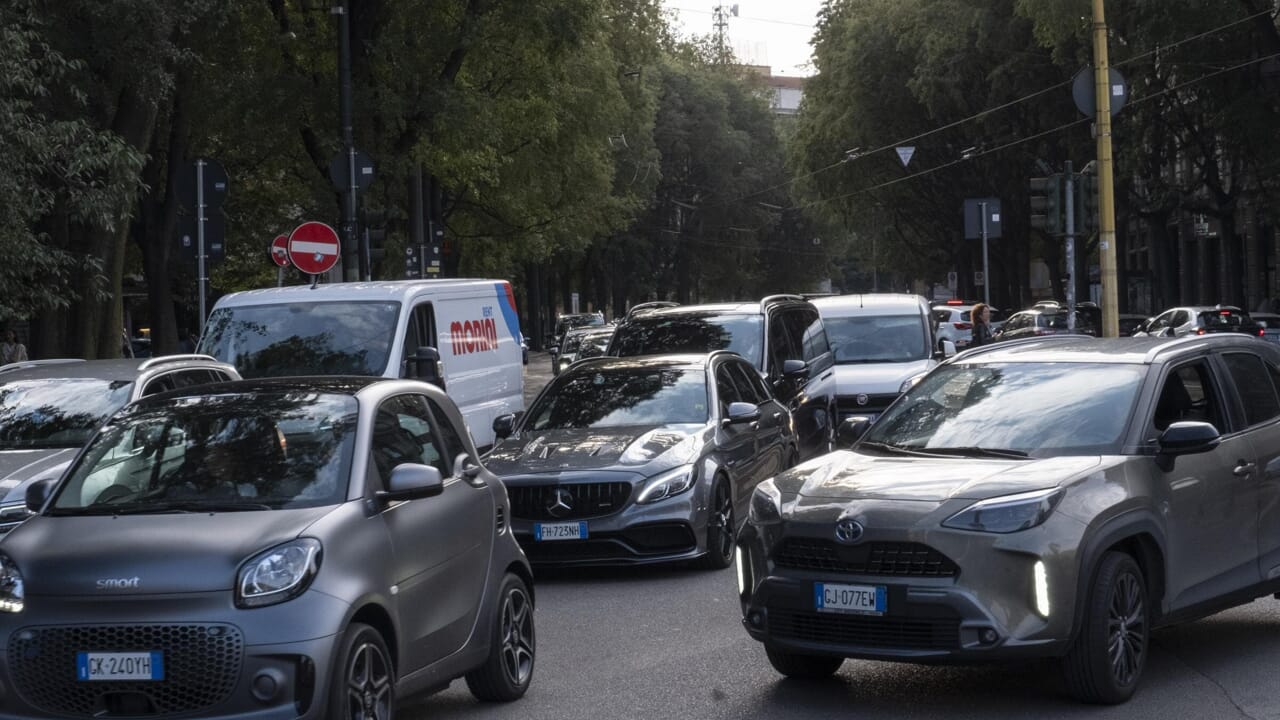Czechia and Italy are seeking a delay on fines for European carmakers unlikely to meet next year’s emissions targets. The topic, which has stirred divisions among Member States, will be discussed at this week’s informal European Council summit in Budapest.
The decline in EU electric vehicle demand
Czech Transport Minister Martin Kupka (ODS, ECR) announced the initiative on CNN Prime News on Sunday, raising concerns that the recent EU-wide decline in electric vehicle demand will make it challenging for manufacturers to achieve the required 15% emissions reduction by 2025.
“They can’t meet the target because interest in electric cars has fallen across the European Union,” Kupka explained.
To meet these requirements, European carmakers must increase the share of electric vehicles in their fleets, aligning with EU regulations targeting a 100% emissions reduction by 2035. However, recent sales data reveals a drop in electric vehicle purchases, raising concerns for both manufacturers and policymakers.
Germany also expressed its support, with Economy Minister Robert Habeck (Greens)—a strong advocate for e-mobility—agreeing that a temporary pause on fines would benefit the industry.
The European Automobile Manufacturers’ Association (ACEA) also called on EU institutions to offer relief measures that would help carmakers meet their targets without the added burden of penalties.
Meanwhile, Transport & Environment (T&E), the EU leading advocates for clean transport and energy, forecasts that battery electric vehicles could capture a 20-24% market share by 2025, largely driven by falling prices that make these vehicles more accessible. However, T&E cautions that the current drop in market interest could hinder achieving these projections without further industry support.
The situation in Czechia
The Prime minister of the Czech Republic also emphasized that forcing manufacturers to pay penalties for unmet targets could reduce the funds available for further investment in electric vehicle technology, potentially slowing the industry’s progress in the long term.
Kupka also mentioned that Czechia wants to initiate discussions on delaying the EU-wide ban on internal combustion engines set for 2035. Although the EU plans to review this policy in 2026, Czechia advocates for an earlier conversation—potentially as soon as next year—to ensure the policy remains responsive to market conditions.
The Czech Republic is among a group of EU countries pushing back against the bloc’s so-called Green Deal to tackle climate change and curb pollution. The tougher limits next year are a step towards plans to ban sales of new combustion engine vehicles in 2035.
The car industry contributes around 9% of GDP in the Czech Republic, a country of 10.9 million which made 1.4 million cars in 2023, making it one of Europe’s biggest per-capita producers. Big carmakers as Volkswagen’s Skoda, Hyundai and Toyota operate in the country.
